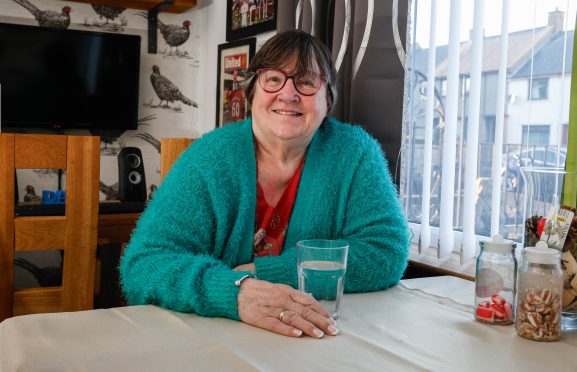Nearly eight in 10 families with disabled children struggle to afford their Christmas presents, according to a recent survey.
A UK-wide poll of 975 parents was carried out by Family Fund, a national charity which supports families with disabled or seriously ill children.
Extra costs of the ‘disability price tag’ on items such as sensory toys push up their cost of their Christmas shopping, the charity said.
‘Worry over Christmas presents’
The survey found that nearly 80% of these families are worried they will not be able to afford presents for their disabled or seriously ill children.
And 44% of parents who responded to the charity’s survey said that special sensory toys were the highest in demand from their children.
But just one in 10 parents said they are able to afford them – a crisis Kirriemuir mum-of-five, Tori Chamberlain, can sympathise with.
Her daughter Millie has autism and has a niche set of interests – often the case in children with autism.
Tori says that when Millie was younger she liked a TV programme called Jake and the Never Land Pirates and was extremely keen on the show’s merchandise. Now, it’s Disney’s Stitch.
Tori, 44, said: “Things for children with addition support needs can be very expensive. Often they have a niche interest and can you find yourself shipping things in from America.
“And sensory items are expensive too, as soon as you put the word ‘sensory’ in front of anything it makes it more expensive.”
Millie’s condition means that she needs to carry a backpack with emergency items including ear defenders, ear plugs, sensory toys, clicking items, and soft tactile objects.
Tori said: “When she’s in high states of anxiety she will chew.
“She used to chew herself when she was younger, her fingers, nails, the skin on her hands – literally chewing over a problem.
“Now she has chewable jewellery, which costs around £16 each, and when she’s agitated they only last about two weeks.”
as soon as you put the word ‘sensory’ in front of anything it makes it more expensive.”
Tori Chamberlain
Tori’s comments mirror those who responded to Family Fund’s survey, where one in 10 families said the most expensive play item they had bought for their disabled children was a sensory toy.
Of these families, half said that they had spent more than £200 on the toy of choice and some even forked out more than £500.
Cheryl Ward, CEO of Family Fund, said: “This research is incredibly worrying, with so many families raising disabled children facing a struggle to afford the toys that their children need, due to the extra costs of the ‘disability price tag.’
“Sensory toys, which have light and texture features, are stimulating and appealing for disabled children, but they’re significantly more costly than other toys.
“It’s already around three times more expensive to raise a disabled child, compared with other children, so we’re really concerned that families on low incomes, whose children have complex needs, may miss out.”
Family Fund is asking people to support families in urgent need by texting FAMILYFUND 5 to 70460 to donate.











